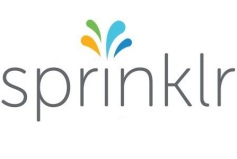Bloc kchains can be extended beyond the database paradigm towards a general application platform. These platforms work very differently. For example, they have shared virtualized databases, micropayments and consensus mechanisms, from common on-premise or on-cloud platforms that they have the potential to re-implement the named examples while not allowing one party to monopolize the platform.
kchains can be extended beyond the database paradigm towards a general application platform. These platforms work very differently. For example, they have shared virtualized databases, micropayments and consensus mechanisms, from common on-premise or on-cloud platforms that they have the potential to re-implement the named examples while not allowing one party to monopolize the platform.
The main Blockchains like Bitcoin are an example for a distributed autonomous organization. These are organizations centered around code as their ‘constitution’ and have as its main players users, developers, miners (those that render the infrastructure) and evangelists.
Source: Facebook, Uber, Airbnb, eBay: How Blockchain Can Break Data Monopolists

 Today – in America and globally – the multi-billion-dollar music industry is mired in a Rubik’s Cube of rights administration and royalty payment systems. The current massive multiplayer infrastructure does not serve songwriters, record companies, digital services or consumers.
Today – in America and globally – the multi-billion-dollar music industry is mired in a Rubik’s Cube of rights administration and royalty payment systems. The current massive multiplayer infrastructure does not serve songwriters, record companies, digital services or consumers. Ashcroft was keen to talk up the significance of PRS for Music’s investments in back-end technology, from its core systems in the UK to its European joint venture with German and Swedish peers GEMA and STIM. PRS says the number of music ‘uses’ it processed rose from 975bn in 2014 to over 2tn (trillion) in 2015 – a reflection of the deluge of streaming data.
Ashcroft was keen to talk up the significance of PRS for Music’s investments in back-end technology, from its core systems in the UK to its European joint venture with German and Swedish peers GEMA and STIM. PRS says the number of music ‘uses’ it processed rose from 975bn in 2014 to over 2tn (trillion) in 2015 – a reflection of the deluge of streaming data. Digital service providers (DSPs) have copped a lot of flack for a perceived lack of support for classical music. Some of the criticism has been leveled at the methodologies used to ingest and display classical, which can vary widely from store to store. A universal standard amongst stores for organising classical music would be ideal. However, this is half the problem; for DSPs to ever display classical metadata correctly, they’ll always be reliant on a supply of consistently good metadata.
Digital service providers (DSPs) have copped a lot of flack for a perceived lack of support for classical music. Some of the criticism has been leveled at the methodologies used to ingest and display classical, which can vary widely from store to store. A universal standard amongst stores for organising classical music would be ideal. However, this is half the problem; for DSPs to ever display classical metadata correctly, they’ll always be reliant on a supply of consistently good metadata. Blockchain technology is what enables Bitcoin to allow financial exchange without a middleman. It is effectively a decentralized database where participants follow a protocol to record the ownership of tokens of value and their exchange, without the need for a central entity like a bank to provide trust.
Blockchain technology is what enables Bitcoin to allow financial exchange without a middleman. It is effectively a decentralized database where participants follow a protocol to record the ownership of tokens of value and their exchange, without the need for a central entity like a bank to provide trust.

 has agreed to license data and reviews to Sprinklr, a company that helps marketers track what consumers say about them on digital platforms.
has agreed to license data and reviews to Sprinklr, a company that helps marketers track what consumers say about them on digital platforms. Web searches, page visits, online purchases, tweets, SMS messages, emails, phone calls, photos, videos, GPS coordinates – this is the data that makes up our digital lives.
Web searches, page visits, online purchases, tweets, SMS messages, emails, phone calls, photos, videos, GPS coordinates – this is the data that makes up our digital lives.